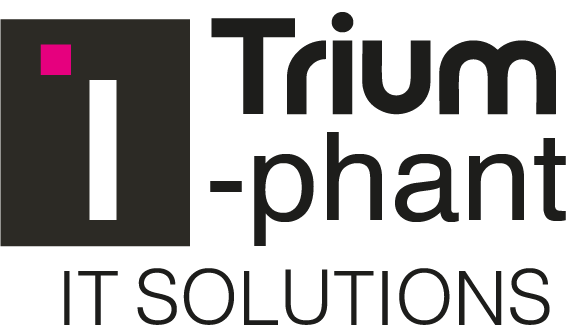Before now, using a single machine for a single application was common across different industries. For example, visualize a business with three servers. They use each server to run a different service on a unique operating system.
Here, virtualization is what this business needs to optimize the procedures around these operations. Therefore, one server could perform the tasks just as well and more effectively using a program known as a Hypervisor than three servers running each application.
You can run virtual machines, containers, and Kubernetes clusters using the VMware Workstation family of desktop hypervisor products. These virtual machines sit on top of the virtualization layer that VMware Workstation controls. Businesses implementing virtualization aim to improve capacity utilization and reduce costs.
So what are the principal advantages of virtualization? To make this study straightforward, let’s learn about a Hypervisor before moving on to that.
What is a Hypervisor and How Does it Work?
A hypervisor authorizes the use of multiple virtual machines on a single physical machine. It does this by allocating and controlling the sharing of resources like RAM, CPUs, storage, and others.
Hypervisors come in two different categories.
- Type one
- Type two
Type one is set up on bare metal hardware, which means the computer is devoid of any software or an active operating system. On the other hand, Type 2 runs on top of an active operating system. VMWare Workstation and VirtualBox are examples.
As a result, the operating system is sandwiched between the computer and the hypervisor. Cloud hypervisors allow several virtual machines to share a single physical server’s resources and operate simultaneously.

Top 5 Benefits of Virtualization
The advantages of virtualization in cloud computing can actually help your business advance. Here are five of the numerous advantages of virtualization.
1. Increased Efficiency and Multitasking
Due to its simplicity and speed, virtualization aids IT professionals in operating more efficiently. It eliminates downtime and helps to save progress in real-time.
Instead of just one computer running on your computer hardware, you can operate many computers with the aid of a hypervisor. Tools like VMware Workstation enable you to run various operating systems as virtual machines.
You can swiftly deploy numerous instances of the same virtual environment because virtual environments are scalable. Additionally, it improves management, or the capacity to transfer, duplicate, and isolate virtual machines.
2. It is Cost-effective
Operations costs can be greatly decreased with virtualization. It is a cost-effective strategy because your firm will experience cost savings, and you will spend much less on servers. One physical server can be divided into numerous virtual machines running different operating systems and applications thanks to virtualization.
Virtual servers and cloud storage eliminate the need for physical systems and hardware, saving businesses a lot of money on power and maintenance costs.
3. Induces Better Resource Management and Security
Resource management is simple because multiple operating systems and programs can be installed on a single server. For instance, VMware Workstation is an effective and recommended solution that enables you to safely run a second operating system as a virtual machine on a single computer.
Virtualization shields you from a variety of potential cybersecurity risks. It functions as a virtual switch to guard against harmful malware, viruses, and other attacks on your data and apps.
Virtual firewalls offer significantly more cost-effective data access restrictions when compared to traditional data protection methods.
4. Helps to Segment Production and Development Environment
Virtualization provides on-demand access to an infinite number of perfectly replicated virtual machines. Virtualization enables developers to divide their environments into development and production with minimal additional hardware.
You can clone a VM to set up testing environments in no time to test features and debug bugs.
With tools like VirtualBox, you can:
- Run more than one OS at a time
- Expediting updates and improving software security happen simultaneously
- Maintain an efficient pipeline between development, testing, and deployment.
5. Virtualization Introduces an Eco-friendly Approach By Reducing Energy Consumption
An enormous amount of power is consumed by a data center, which is why these facilities are always looking for ways to use less power. The solution to reducing data centers’ energy consumption is virtualization.
An enormous amount of power is consumed by a data center, which is why these facilities are always looking for ways to use less power. The solution to reducing data centers’ energy consumption is virtualization.
Reduced power costs less money to maintain servers and data centers, which benefits a variety of industries. The advantages of virtualization also include better performance, automated procedures, and increased workload mobility.
Conclusion
In a nutshell, virtualization is important to companies because it decreases business downtime and boosts business continuity and disaster recovery. Virtualization, which divides a single piece of hardware into several independent components, greatly improves a server group’s capacity to share resources.
Cloud computing virtualization also handles long-distance data transfers, helping businesses to move data easily from physical storage to a virtual server and vice versa.
You can avoid the hassle of implementing this service in your company by having experts carry out the processes for your company.
As a reputable security company, we can help your business install virtual machines. So for all of your cloud/IT or security needs, contact us right now.
Related Posts
15th December 2022
Use of Shipping Label Printers in Business
A shipping label printer is a device that prints the barcode and order…
25th October 2022
The Basic Difference Between MFA and 2FA – Which is Better?
In the past, businesses relied on single authentication to confirm who was…
25th March 2020
Should I Migrate to the Cloud? Pros and Cons of Cloud Computing
You can save yourself the stress of maintaining physical data servers when you…




